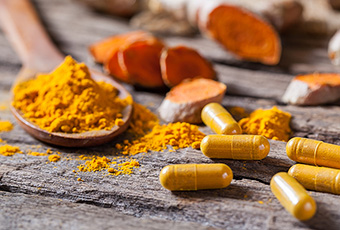Ask the Expert: Empowering your health through nutrition

As an Integrative Nutritionist, founder of Unspoken Nutrition, and patient advocate, Neeyaz Zolfaghari is dedicated to helping individuals with autoimmune conditions, like psoriasis, find and create harmony with their daily habits to support well-being and health.
Having lived with two autoimmune diseases for over a decade, Zolfaghari has personally experienced some of the challenges in managing symptoms. In a recent Ask the Expert discussion, she shared some valuable lifestyle and diet tips with the Psoriasis Support Community. Read on for highlights from the discussion.
Question: Are there any specific probiotics you might recommend for those with psoriasis?
Zolfaghari: As far as probiotics for psoriasis are concerned, I recommend never taking a probiotic blindly without first testing to see what specific strain(s) you need. One of the things I see in practice often, is when someone purchases a probiotic and still experiences the already existing symptoms or have developed new ones. More often than not, they're taking a probiotic with a bacterial strain that they are already high in, thus exasperating their gut microbiome and in turn, reducing the amount of beneficial bacteria. With vitamins and supplements, including probiotics - always test, don't guess.
Question: What is the best diet for psoriatic arthritis and psoriasis?
Zolfaghari: Nutrition and diet no doubt play a huge part in helping to mitigate and reduce inflammatory symptoms associated with autoimmune diseases, such as psoriasis.
A diet rich in anti-inflammatory foods will in turn reduce any inflammatory factors and processes that can contribute to flares. I like to focus on foods you can add, versus remove (the list is longer too ;) ). Omega 3 rich foods such as fatty fish, avocados and olive oil are wonderful sources. Olive oil in fact is rich in oleic acid, which helps protect cell membranes from oxidation. Increase your intake of antioxidant rich foods such as vitamin A, vitamin C, vitamin E - these all come from colorful fruits and vegetables especially. The more color on your plate, the more nutrient dense. The carotenoids and flavonoids from these colors are antioxidant, antiviral and anti-inflammatory. Selenium rich foods are also important - just 2 brazil nuts a day meets your recommended daily intake.
And yes, to put it simply, a Mediterranean diet is the most optimal.
Question: I'm a 45 y/o female and I was recently diagnosed with guttate psoriasis. I'd like to find out how I can manage it through gut health as opposed to biologic treatment.
Zolfaghari: Psoriasis is an inflammatory condition, so if you're wanting to manage it through gut health, I'd look to see what could be causing excess GI inflammation. Do you notice your flares get worse when you eat certain foods? That might be an a-ha moment to pay attention to. As far as what could provide support for gut health, bone broth is a staple and I advocate for it. It has so many healing properties that are beneficial for really anyone with nearly any type of condition.
I'd also see if you're deficient in any vital nutrients such as vitamin D and vitamin A, both which help with guttate psoriasis. Ask your doctor to check both values and if your results are less than favorable, increasing both through the use of nutrition and foods (supplements come second) that would be a good place to start. I caution the use of any supplement - do not take blindly and please only do under the careful watch of your physician.
To read more questions and answers from this Ask the Expert, read the full discussion in the Psoriasis Support Community on Inspire.




